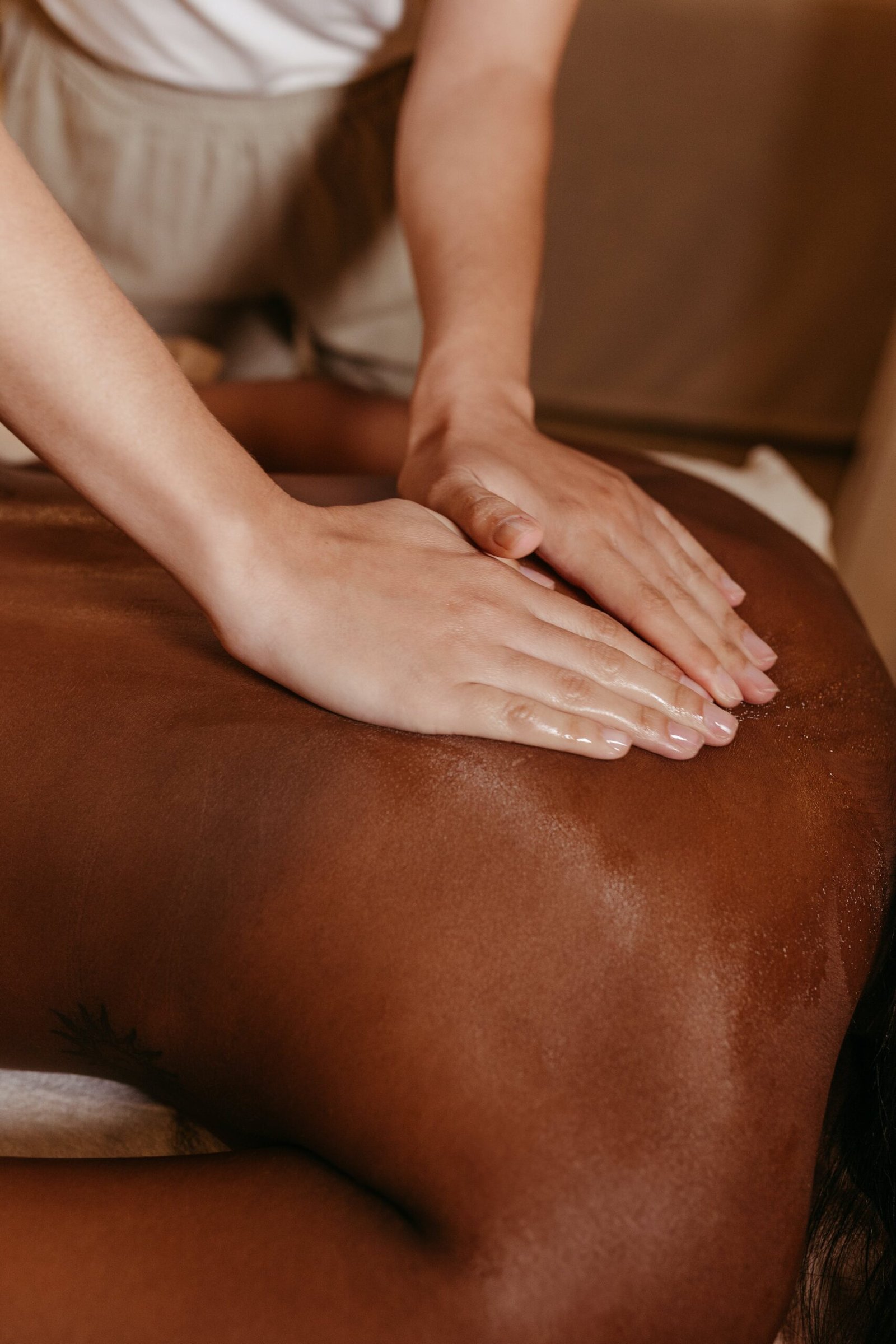
Imagine waking up in the morning, ready to tackle the day ahead, only to be greeted by a nagging pain in your neck. We’ve all been there, and it’s certainly not the best way to start the day. But fret not, because in this article, we’ll be uncovering the mysterious causes behind this unpleasant wake-up call, as well as exploring some effective solutions to help you bid adieu to that morning neck pain. So, get ready to say goodbye to those stiff and sore mornings, and hello to a pain-free start to your day!

Causes of Neck Pain in the Morning
Sleeping Position
Your sleeping position plays a significant role in the occurrence of neck pain in the morning. Certain sleeping positions can place undue stress on your neck, leading to discomfort and stiffness. Sleeping on your stomach, for example, can strain your neck as it forces your head to be turned to one side for an extended period. On the other hand, sleeping on your back or side with proper alignment of your neck and spine can help alleviate neck pain.
Pillow Choice
Choosing the right pillow is crucial in preventing neck pain in the morning. A supportive pillow keeps your neck and spine aligned, reducing the risk of strain and discomfort. The ideal pillow should not be too high or too low, but instead maintain a neutral position for your head and neck. There are various types of pillows available, including memory foam, feather, and ergonomic pillows. Experiment with different options to find the one that suits your needs best.
Mattress Quality
The quality of your mattress can also contribute to neck pain. A mattress that is too soft or too firm may not provide adequate support to your neck and spine, leading to misalignment and discomfort. Finding the right firmness level is essential; a medium-firm mattress is often recommended as it provides a balance of support and comfort. Additionally, consider the materials used in your mattress, as some may offer better support for your neck than others. If your mattress is old and sagging, it may be time to invest in a new one.
Muscle Strain
Muscle strain is a common cause of neck pain, especially in the morning. Poor posture, awkward sleeping positions, or overuse of neck muscles can lead to muscle tension and discomfort. To prevent muscle strain, practice good posture throughout the day. Stretching and strengthening exercises specifically targeting the neck muscles can also help alleviate pain and improve flexibility. Additionally, incorporating relaxation techniques such as deep breathing and gentle neck massages can provide relief.
Nerve Compression
Nerve compression occurs when nerves in the neck are compressed or pinched, leading to pain, numbness, or tingling sensations. This can be caused by conditions such as herniated discs, bone spurs, or spinal stenosis. If you suspect nerve compression as the cause of your morning neck pain, it is essential to seek medical attention for proper diagnosis and treatment. Treatment options may include physical therapy, medication, or, in severe cases, surgical intervention.
Arthritis
Arthritis, specifically osteoarthritis and rheumatoid arthritis, can affect the neck and cause morning neck pain. Osteoarthritis occurs due to the wear and tear of the joints, while rheumatoid arthritis is an autoimmune condition. Both can lead to inflammation, stiffness, and pain in the neck. Managing arthritis-related neck pain may involve medications to reduce inflammation, physical therapy to improve mobility, and lifestyle changes such as maintaining a healthy weight and avoiding activities that aggravate the condition.
Injury or Trauma
Injuries or trauma, such as whiplash from a car accident or a fall, can result in neck pain. If you’ve recently experienced an injury or trauma and are waking up with neck pain, it is crucial to seek medical attention as soon as possible. Depending on the severity and extent of the injury, treatment options may include rest, pain medication, physical therapy, or in some cases, surgery. Taking immediate action can help prevent long-term complications and promote faster healing.
Stress and Tension
Stress and tension can manifest physically, leading to neck pain in the morning. When you’re stressed, your muscles tend to tense up, and this can contribute to discomfort and stiffness. Managing stress through relaxation techniques such as meditation, deep breathing exercises, and regular exercise can help alleviate morning neck pain caused by stress and tension. Additionally, incorporating stress management strategies into your daily routine, such as prioritizing self-care and seeking support when needed, can have a positive impact on your overall well-being.
Sleep Apnea
Sleep apnea, a sleep disorder characterized by interrupted breathing during sleep, can also contribute to morning neck pain. When your airway becomes partially or fully blocked during sleep, your body may compensate by tensing the muscles in your neck and shoulders, leading to discomfort upon waking up. Treating sleep apnea through interventions such as using a continuous positive airway pressure (CPAP) machine or oral appliances can help improve sleep quality and reduce morning neck pain.
Fibromyalgia
Fibromyalgia is a chronic condition characterized by widespread pain, fatigue, and tender points throughout the body. Neck pain in the morning can be a symptom of fibromyalgia. If you suspect fibromyalgia as the cause of your neck pain, it is recommended to seek medical attention for proper diagnosis and treatment. Treatment options may include medications to manage pain and symptoms, physical therapy, and lifestyle changes such as exercise and stress management.
Solutions for Alleviating Neck Pain
Adjusting Sleeping Position
Making adjustments to your sleeping position can help relieve neck pain. If you frequently sleep on your stomach, try transitioning to sleeping on your back or side. When sleeping on your back, use a pillow that provides proper support for your neck and maintain a neutral spine alignment. If you prefer sleeping on your side, place a supportive pillow between your head and shoulder to keep your neck aligned. Experiment with different positions and pillows until you find the combination that works best for you.
Choosing the Right Pillow
Selecting a supportive pillow is essential in alleviating neck pain. Look for a pillow that keeps your spine aligned in a neutral position. Memory foam pillows contour to the shape of your head and neck, providing targeted support. Feather pillows offer a soft and adjustable option, while ergonomic pillows are designed specifically to promote proper neck alignment. Consider your preferred sleeping position and personal preferences when choosing a pillow and replace your pillow regularly to ensure optimal support.
Investing in a Good Mattress
Investing in a good-quality mattress can significantly impact your neck health. A mattress that offers proper support and appropriate firmness level can help alleviate neck pain. Look for a medium-firm mattress that contours to your body’s curves while maintaining spinal alignment. Consider mattress materials such as memory foam, latex, or hybrid options to find the right balance of comfort and support. If your mattress is old and no longer provides optimal support, it may be time to consider replacing it.
Stretching and Strengthening Neck Muscles
Regularly stretching and strengthening your neck muscles can help alleviate pain and improve flexibility. Gentle stretching exercises, such as neck rolls and side-to-side stretches, can help loosen tight muscles. Strengthening exercises, such as neck isometrics and resistance band exercises, can help build muscle strength and stability. It is essential to perform these exercises under the guidance of a healthcare professional, especially if you have existing neck conditions or injuries.
Applying Heat or Cold Therapy
Applying heat or cold therapy to your neck can provide temporary relief from morning neck pain. Heat therapy, such as using heating pads or taking warm showers, can help relax tense muscles and improve blood circulation. Cold therapy, such as applying ice packs or using cold compresses, can help reduce inflammation and numb pain. Experiment with both heat and cold therapy to see which one works best for you and use them in moderation to avoid skin irritation or burns.
Using Neck Support Devices
Using neck support devices, such as cervical collars or neck pillows, can provide additional support and alleviate morning neck pain. Cervical collars are typically used for short-term relief and immobilization of the neck in cases of acute injury or trauma. Neck pillows are designed to support the natural curvature of your neck while you sleep, ensuring proper alignment and reducing strain. Consult with a healthcare professional to determine if using neck support devices is suitable for your specific condition.
Medical Treatment Options
In some cases, medical treatment options may be necessary to alleviate morning neck pain. If conservative measures fail to provide relief, your healthcare provider may suggest interventions such as physical therapy, pain medications, or injections to manage pain and improve mobility. In certain situations, surgical intervention may be required to address underlying conditions or injuries. It is crucial to work closely with your healthcare team to determine the most suitable treatment plan for your individual needs.
Managing Stress
Managing stress is essential in reducing morning neck pain caused by tension and muscle tightness. Incorporate stress management techniques into your daily routine, such as mindfulness meditation, deep breathing exercises, or engaging in activities that promote relaxation. Regular exercise, getting enough sleep, and maintaining a healthy lifestyle can also help reduce stress levels. Seeking support from friends, family, or a mental health professional can provide additional assistance in managing stress effectively.
Treating Sleep Apnea
Treating sleep apnea can help alleviate morning neck pain associated with compromised airway and muscle tension. Consult with a sleep specialist to determine the most appropriate treatment option for your specific condition. Continuous positive airway pressure (CPAP) machines are commonly used to maintain open airways during sleep. Oral appliances that reposition the jaw and tongue may also be recommended. Lifestyle changes, such as maintaining a healthy weight and avoiding alcohol and sedatives, can further support the management of sleep apnea.
Seeking Help for Fibromyalgia
If you suspect fibromyalgia as the underlying cause of your morning neck pain, it is crucial to seek medical help for proper diagnosis and treatment. A healthcare professional with expertise in managing fibromyalgia can guide you through the available treatment options. Medications to manage pain, lifestyle modifications, and therapies such as cognitive-behavioral therapy and physical therapy may be recommended. It is important to have ongoing support and medical management for fibromyalgia to improve your quality of life and reduce morning neck pain.

Sleeping Position
Impact on Neck Health
Your sleeping position has a significant impact on the health of your neck. The way you position your head and neck during sleep can either promote or hinder proper alignment. Poor sleeping positions can strain the muscles and ligaments in your neck, leading to pain, stiffness, and discomfort upon waking up. Conversely, sleeping in positions that support the natural curvature of your neck and spine can help alleviate morning neck pain and promote overall neck health.
Recommended Positions
For optimal neck health, sleeping on your back or side is often recommended. When sleeping on your back, use a thin pillow or no pillow at all to maintain a neutral spine alignment. If you prefer sleeping on your side, ensure that your pillow is of adequate height and firmness to fill the gap between your ear and shoulder, supporting your neck in a neutral position. These positions help distribute the weight of your head evenly and reduce strain on your neck muscles.
Avoiding Poor Sleeping Positions
Certain sleeping positions can contribute to morning neck pain and should be avoided. Sleeping on your stomach, for example, forces your head to be turned to one side for an extended period, placing strain on your neck. This position can lead to misalignment of your spine and contribute to neck discomfort. Additionally, sleeping with overly thick or multiple pillows can push your head forward, straining your neck muscles. Avoiding these poor sleeping positions can help prevent morning neck pain and improve your overall sleep quality.
Pillow Choice
Importance of a Supportive Pillow
Choosing the right pillow is crucial in preventing morning neck pain and promoting a healthy sleeping posture. A supportive pillow keeps your head and neck aligned with your spine, reducing strain and discomfort. When your neck is properly supported, the muscles and ligaments can relax, allowing for optimal rest and recovery during sleep. A lacking or unsupportive pillow, on the other hand, can lead to an imbalance, causing strain and contributing to neck pain.
Different Pillow Types
There are various types of pillows available, each offering different levels of support and comfort. Memory foam pillows conform to the shape of your head and neck, providing customized support. Feather pillows are soft and adjustable, allowing you to mold them to your desired shape. Ergonomic pillows are specifically designed to promote proper neck alignment, with contours that cradle your head and neck. Understanding the different pillow types can help you make an informed decision when selecting the most suitable pillow for your needs.
Finding the Right Height and Firmness
In addition to selecting the appropriate pillow type, finding the right height and firmness is essential for optimal support and comfort. The height of your pillow should allow your head to rest in a neutral position, aligning with your spine. If the pillow is too high or too low, it can strain your neck. The firmness of the pillow is a matter of personal preference, but it should offer enough support to maintain proper alignment. Experimenting with different pillow heights and firmness levels can help you find what works best for you.
Replacing Old Pillows
Over time, pillows can lose their shape and supportiveness, which can contribute to neck pain. It is recommended to replace your pillow every 1 to 2 years or when it starts to show signs of wear and tear. If you wake up with neck pain despite using a supportive pillow, it may be a sign that it needs replacement. Regularly assessing the condition of your pillow and investing in a new one when necessary can ensure that you have the optimal support for your neck and reduce the likelihood of morning neck pain.






